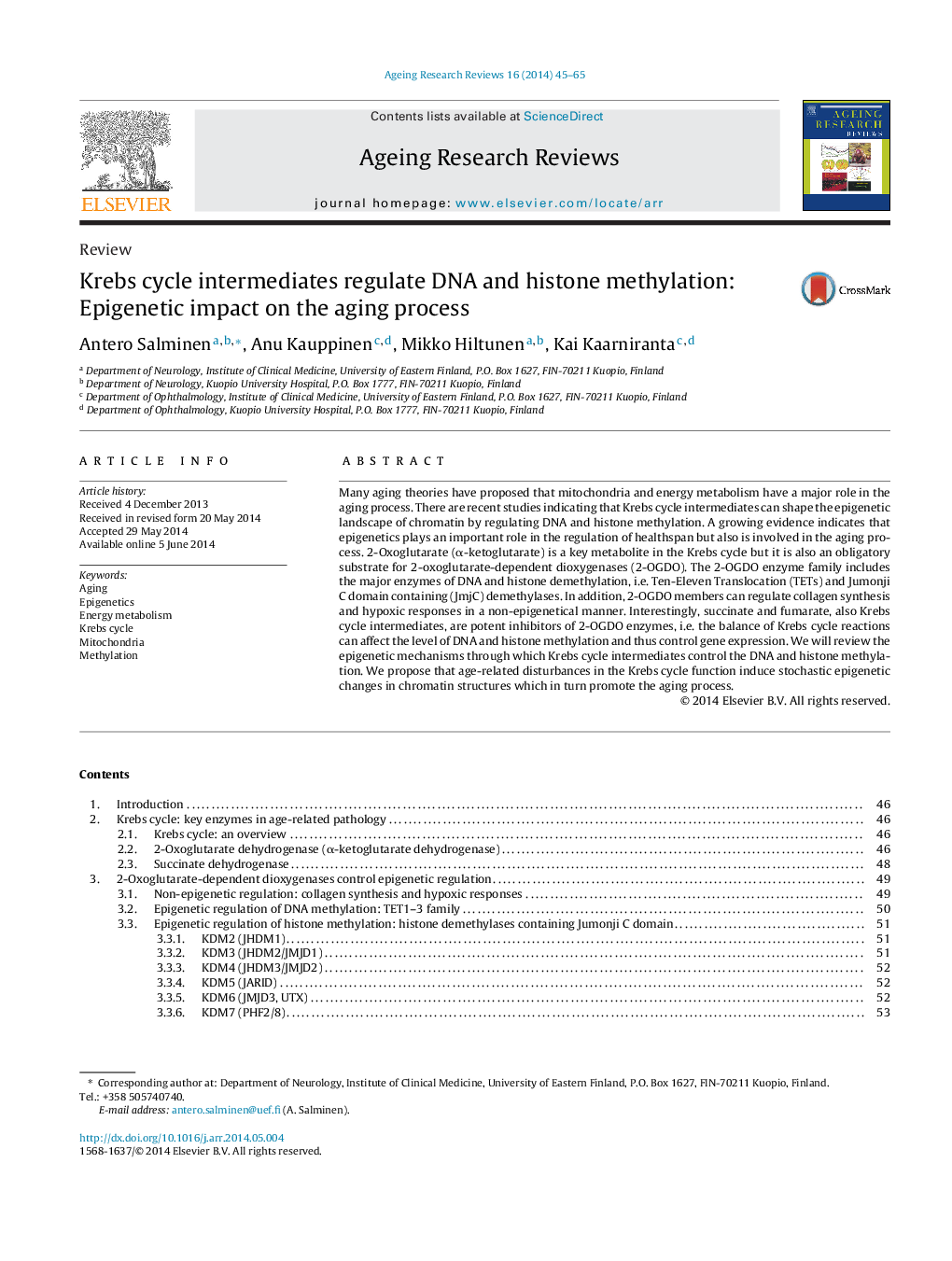| Article ID | Journal | Published Year | Pages | File Type |
|---|---|---|---|---|
| 1902248 | Ageing Research Reviews | 2014 | 21 Pages |
•The aging process involves disturbances in mitochondrial energy metabolism.•Krebs cycle intermediates control the epigenetic landscape of chromatin in cancer.•2-Oxoglutarate stimulates and succinate inhibits DNA and histone demethylases.•Epigenetic changes with aging could be caused by impaired Krebs cycle function.
Many aging theories have proposed that mitochondria and energy metabolism have a major role in the aging process. There are recent studies indicating that Krebs cycle intermediates can shape the epigenetic landscape of chromatin by regulating DNA and histone methylation. A growing evidence indicates that epigenetics plays an important role in the regulation of healthspan but also is involved in the aging process. 2-Oxoglutarate (α-ketoglutarate) is a key metabolite in the Krebs cycle but it is also an obligatory substrate for 2-oxoglutarate-dependent dioxygenases (2-OGDO). The 2-OGDO enzyme family includes the major enzymes of DNA and histone demethylation, i.e. Ten-Eleven Translocation (TETs) and Jumonji C domain containing (JmjC) demethylases. In addition, 2-OGDO members can regulate collagen synthesis and hypoxic responses in a non-epigenetical manner. Interestingly, succinate and fumarate, also Krebs cycle intermediates, are potent inhibitors of 2-OGDO enzymes, i.e. the balance of Krebs cycle reactions can affect the level of DNA and histone methylation and thus control gene expression. We will review the epigenetic mechanisms through which Krebs cycle intermediates control the DNA and histone methylation. We propose that age-related disturbances in the Krebs cycle function induce stochastic epigenetic changes in chromatin structures which in turn promote the aging process.
